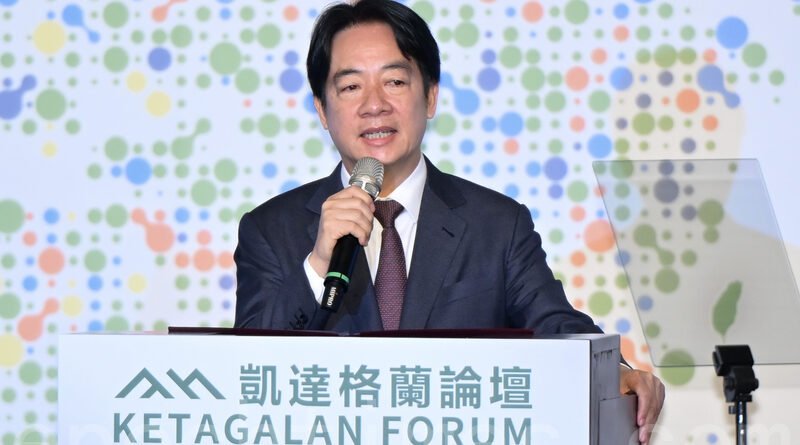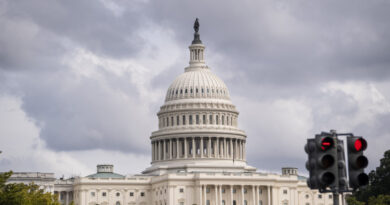Taiwan’s President Stands Firm Against China’s Authoritarian Expansion
‘China’s growing authoritarianism will not stop with Taiwan,’ said Taiwan President Lai Ching-te.
TAIPEI, Taiwan—Taiwan President Lai Ching-te called on democratic countries to team up and take “concrete” steps to confront the Chinese regime’s authoritarian expansion.
“China intends to change the rules-based international order,” Lai continued. “That is why democratic countries must come together and take concrete action. Only by working together can we inhibit the expansion of authoritarianism.”
Lai pointed out that Taiwan has become less reliant on the Chinese market, with exports to China as a percentage of total exports dropping from 43.1 percent in the first half of 2010 to 31.2 percent in the first half of this year. The decrease marked the lowest for the same period in the last 22 years, he said.
Taiwanese investment in China as a percent of the island’s total outbound investment also decreased to an all-time low last year, going from 83.8 percent in 2010 to 11.4 percent in 2023, he added.
Lai reiterated his four-pillar plan to maintain peace across the Taiwan Strait, including increasing the defense budget and diversifying trade through new trade agreements.
Another part of the plan calls for strengthening partnerships with “like-minded partners,” Lai said, particularly on semiconductors and manufacturing what he called “democracy chips.”
“We hope our partners can be united as we support the democratic umbrella. We must take collective action to confront the challenges presented by authoritarianism and defend our shared values,” the president said.

Nikki Haley, former U.S. ambassador to the United Nations, attends the Ketagalan Forum in Taipei, Taiwan, on Aug. 21, 2024. Sung Pi-lung/The Epoch Times
UN Membership
Nikki Haley, former South Carolina governor and United Nations ambassador, delivered a speech at the forum on Wednesday. She applauded Taiwan’s leadership role in global efforts to stop the COVID-19 pandemic, even though the island is not a member of the World Health Organization (WHO).
“Taiwan shouldn’t just be in the WHO. Taiwan should be a full member in the United Nations. You have every right to sit at the same table with the world’s countries,” Haley said.
Taiwan is not a member of the WHO or several other international organizations, such as the International Civil Aviation Organization, due to opposition from China.
Haley said the United States and its allies should come together to support Taiwan and “relentlessly push” for the island’s global acceptance.
“We should stand with Taiwan today, not wait until China invades. If we take the necessary steps now, China will think twice about starting a war,” she continued. “The United States must elevate Taiwan on the world stage.”
The former ambassador suggested that the United States sign a free trade agreement with Taiwan, pointing out that doing so would benefit both sides while “weakening China’s economic leverage.”
Haley said Taiwan serves as a beacon of hope for Chinese people oppressed by the CCP. “The 24 million people who live in Taiwan prove that China’s 1.4 billion people can do better than communist tyranny,” she pointed out.
“So long as Taiwan is democratic and free, you remind the enslaved masses in mainland China of the future that could and should be theirs,” Haley continued.
“You keep alive the hope that such a future is within their grasp, a future where they finally cast off the shackles of communist dictatorship and finally take charge of their own destiny.
“This, more than anything, is why the West must embrace Taiwan, without exception or apology,” she added.





